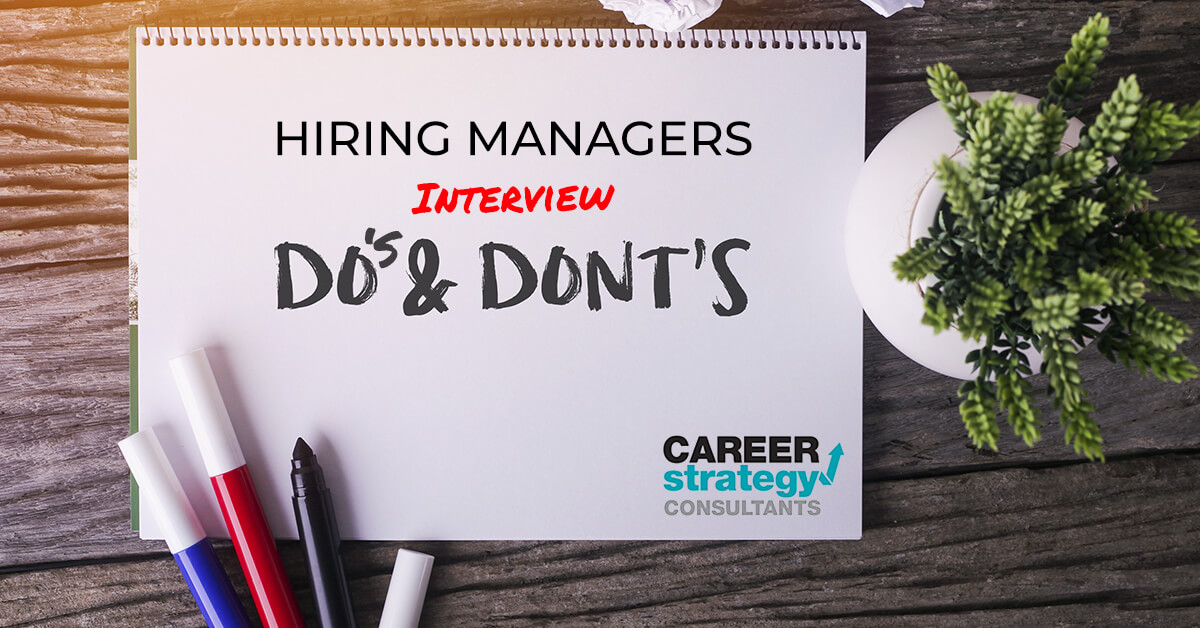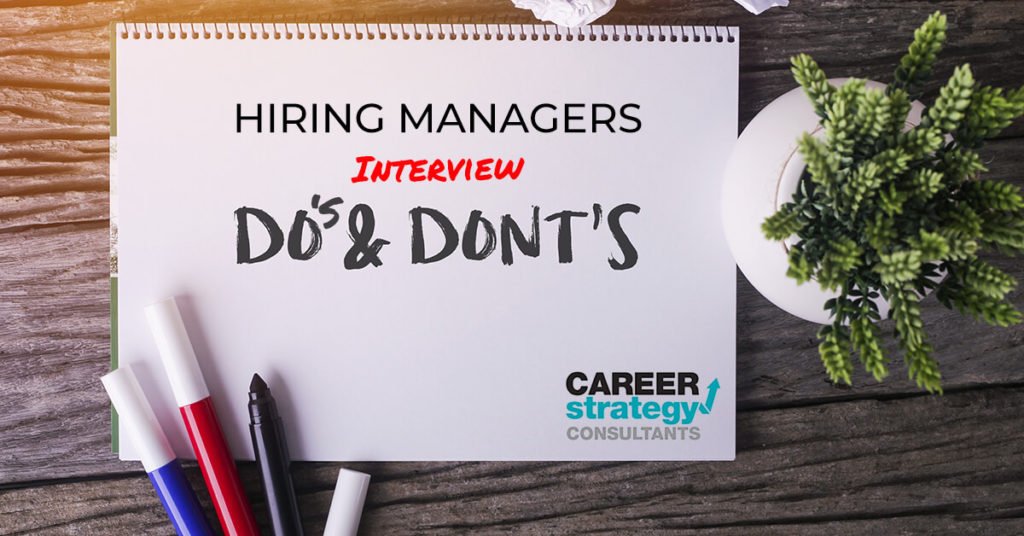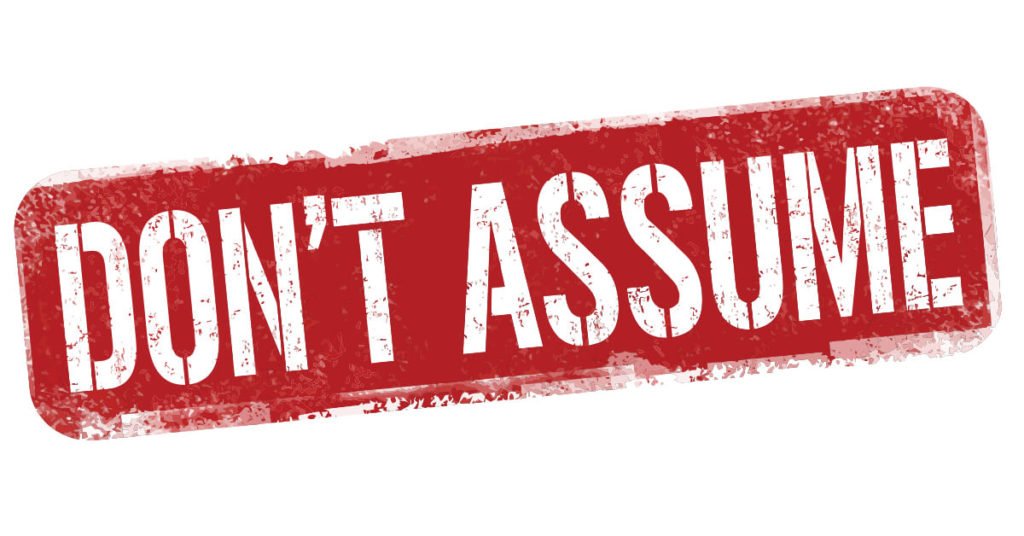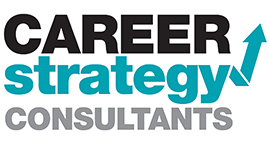Hiring Managers: Interview Do’s and Don’ts


Are you an interviewer looking to fill some positions? If so, you’re probably on the lookout for tips, tricks, and information that will help you find your next great hire. We’ve put together this article with some of the best advice on how to go about filling positions. With these interview tips, you’ll be able to find the next generation of talent in no time!
Interviewing Tips: Do’s And Don’ts

Do: Make A Good First Impression
The first impression is often the most lasting one, and this is especially true in an interview setting. If your first impression is bad, it could seriously hurt whether or not the job candidate takes the job — and more importantly, whether they stay with your company. It can also hurt your ability to hire if candidates tell others about their negative experience. Make a good first impression, and you’ll have a better shot at a successful hire.
Don’t: Ask Uncomfortable Questions
While you might be tempted to ask all sorts of questions, there are many that just aren’t appropriate or will give you a skewed understanding of the candidate. Remember that many candidates will be uncomfortable answering some of these sorts of questions. And even more importantly, they might feel like it’s an invasion of privacy. So steer clear of any question that seems too personal or too invasive: your employees won’t respect or trust you, and it could damage morale. You can still get the information you’re looking for without these types of questions.
Do: Ask Open-Ended Questions
Open-ended questions are designed to help you get a better understanding of the candidate’s thinking skills. These are questions that invite the candidate to explain in more depth why they want the job, what they find challenging about it, and their expectations for success. These types of questions work for candidates, but you should know what not to ask in them: don’t ask questions like “What do you think your strengths are?” or “What will be your biggest challenge in this role?” These types of questions will only make the candidate feel uncomfortable.

Don’t: Assume
Interviewing is a two-way street, and this includes getting to know the candidate. You can’t assume what you think you know about a candidate is correct — in fact, it’s probably not accurate. Don’t assume that you’re going to get along with a candidate just because they’re qualified. Likewise, don’t assume that just because the candidate has done something the same way for six years means that they know how to do it better than someone who’s been doing it for five months. Making assumptions during the interview process will just lead to poor hiring decisions and poor evaluations of potential talent.
Do: Ask Candidates To Explain Their Strengths And Weaknesses
When asking this question, make sure to give the candidate some time to think about it and give an answer that isn’t just a simple list. If the candidate does provide you with a list, make sure they’re able to explain why. This can be a great way to learn about what they’re like as employees and how they’ll fit into your work culture. It can also point out any potential weaknesses that may not have been obvious otherwise; we’ll talk more about this in the second part of this article.
Don’t: Ask Candidates To Play A Job-Role Simulation Game
These are games that have been created to test the skills of potential employees. While they might seem effective at first, they can actually cause more harm than good. We’ve written before about how not to use simulations, so if you’re still using these sorts of things, you should stop. They are usually designed to be difficult, but it’s easy for them to twist things so that the candidate doesn’t perform up to expectations. Get past this stage fast, because it can lead to a lot of misunderstandings and missed opportunities for key hires.
Do: Probe For Strengths
Probing is a helpful tactic that you can use to find out what candidates are good at. It’s not just about figuring out what skills you want for your team or how they’d apply to the specific job. It’s about getting an insight into their personality and what they’re interested in. If you’re asking this question, it can be a great way to learn more about a candidate and help them to feel comfortable during the interview.

Don’t: Ask About Their Past Interviews And Job Applications
If a candidate comes across as nervous or uncomfortable during an interview, this could be noticed by those around them, who will think something is wrong. But there isn’t always a reason for this — the candidate might just be nervous. If this is the case, don’t assume that they’re not interested and that you can’t learn anything from them. A good tip to avoid unnecessary stress and to put the candidate at ease is just to let them know that you’re not looking for a perfect interview.
Do: Help Candidates Express Their Personality
Part of what makes a successful hire is finding someone who fits well with your company’s culture. So it’s crucial to ask questions that will help you assess how well the candidate matches with your company culture. Just like when asking open-ended questions, be careful about what types of questions you ask. The best way to find out if they match is to ask, “What kinds of things do you like to do in your free time?” This shows that you’re open and interested in their personality and interests, and it doesn’t make the candidate feel like you’re judging them.
Don’t: Ask Candidates If They Are Good At (x)
No matter how good at what you are, asking this question will just make the candidate uncomfortable. It sounds like a great idea, but it can lead to damaging results. Plus, if the candidate says yes, they likely aren’t being honest with you. You’ll have no idea how they really are or what skills they have until after the interview is over. But even if they say no, it’s better to be up front about this than finding out after you’ve hired them.
Do: Ask For Candidates’ Goals For Their Next Job
This question is one of the trickier ones to answer. It’s also one that you can use to determine whether the candidate is passionate about the position. It’s up to you to decide how much detail you want to go into with this question, but it can tell you a lot more than just their job title and salary. Being curious enough about them to ask this may also help them feel motivated and excited about the position. You can also use this question as a way to test their skills and see how they apply to the job. This is a great question to ask, especially if it’s your first interview with a candidate.

Don’t: Ask For A Recent paycheck or check stubs
If you ask this question, you risk making the candidate feel uncomfortable. It doesn’t have anything to do with their ability to do the job, but rather, it will reveal information about their personal life that could cause negative feelings from a hiring manager. Many candidates feel nervous that you may be trying to find out about their personal lives, so they’ll become hesitant and defensive.
Do: Ask The Candidate To Talk About Their Most Recent Job
This is a great question to ask. It’s also one that can reveal a lot about what type of job the candidate would be most interested in. If they’re having trouble answering the question, then it might be because they don’t have much experience. But you can also use this fact as an opportunity to learn more about what kind of career path is right for them. This way, you’ll be able to come up with the perfect job for them if this one is not it. If they are answering easily, make sure that the job isn’t actually something that doesn’t pertain to the job you’re trying to fill.
Do: Ask If They Have Any Questions
No matter how many questions you ask in the interview, there’s always a chance that something will confound them. If your candidate is struggling, don’t hesitate to ask them if they have any questions. It shows that you’re not just trying to get through the interview with no regard for their time, and it can even help them feel like they’re not wasting your time. You can also use this question to gauge how well they’ve prepared. If they were able to answer most of the questions before coming in, you might want to consider hiring them right away.
Don’t: Let The Candidate Talk For Too Long If They’re Talking Too Much
You certainly don’t want to interrupt them if they’re talking too much, but during an interview, it’s hard to tell when a candidate starts going off topic. If you have a lot of questions, try to gauge what they’re interested in and how much they know about potential job duties. If after a while they start going off on tangents, consider letting them know that you have a lot of questions for them and encourage them to finish out their responses before you move on to another topic. It will help them feel prepared for the next stage of the interview.

Do: Give Candidates The Option To Accept Or Decline An Offer
It’s good to be honest when asking candidates to accept or decline an offer, but you should also confirm your decision in the same manner. If you’ve already decided they won’t be hired, don’t let it show through in your body language. If they ask why, then be prepared with an explanation that demonstrates that you’re not interested. If you decide they will be hired, then go ahead and let them know. This is how you can give them peace of mind about the job offer and confirm whether it’s a good fit for both of you. Additionally, if they ask why, it can also help them feel more confident about their job offer.
Do: Ask If They Have Any Questions For You
It’s good to ask if they have any questions, but this question can also help them feel confident in the position even if it’s not exactly what they’re looking for. This is a great way to get them excited about working with you and for you and give them confidence about accepting the offer. It’s also a great way to make sure they’re prepared for some of your questions and answers throughout the interview. In addition, it also allows you to start a conversation about the position and lets them know that there’s more to talk about before your interview ends.
Don’t: Ask The Candidate To Negotiate Their Salary
It’s good to make a salary offer early on in the interview, but don’t ask a candidate how much they want to make. If you do, they might not feel as confident about the job offer as if you gave them an offer without asking. You could also find out that they really aren’t interested in the position at all and could be wasting your time. In addition, if you go too low on their salary, they might feel pressured into accepting.
Do: Allow Candidates To Take A Longer Break
It’s a good idea to give your candidate some time to relax during the interview. If you have a long conversation with them, it can be hard for them to keep their energy up if they’re not taking a rest every so often. In some cases, you might even be able to schedule an extended lunch break as well. If you find that they’re getting tired, then you can ask if they’d like a few minutes of time on their own or another break altogether. You can also use this as an opportunity for them to clear their heads and think about what you’ve just said.
Don’t: Ask If They Have Any Questions
If you’ve already asked them a few questions, then don’t ask again before the interview is over. This shows a lack of confidence in their abilities and can show that you’re not going to give them a fair shot based on the interview. It also shows that you have no idea how much they know about their position, which isn’t helpful if it’s your job to hire someone.

Do: Ask Them If They Enjoy The Job At Their Last Company Or Career Path
If they enjoyed their job or career path, it will help convince them that this position will be similar. It will also help them feel more confident about the job offer. Of course, you’ll need to ask questions to see if they can answer your questions about their last job. You should also ask them if they’d like to go into greater detail about their career path at the company. It’s good for both of you.
Don’t: Don’t Waste Their Time If They Have A Busy Schedule
It’s good to keep your interview short, but it’s not good for candidates to sit there while you talk for so long that it becomes clear that they’re bored. If you have a big speech or they seem bored, give them a few minutes to think about their questions. You might even want to let them know that they can’t ask as many questions as they wanted because of the time constraints.
Do: Introduce The Interviewee To Other People In The Office
Introducing candidates to your coworkers is good for both of you. It shows that you appreciated their time and it gives them a chance to see what a typical workday would be like. It’s also a great way for them to see if they’re going to enjoy working with your company. If your company is pretty close knit, it may also give them familiarity with their coworkers even before starting.
Don’t: Show Shock Or Anger If They Miss Something You’ve Said
If you have a bad memory, then it’s okay to show some shock or even disgust if they tell you which question they were asking about, but try not to show anger. It’s important for both of you that you have open communication about what was said in the interview so neither of you feels rushed or uncomfortable.
Do: Ask Them For A Reference If You Don’t Have One Already
If you don’t have a reference at the interview, it’s important to ask for one before they’re hired. It’s not just simple common courtesy; it’s also good for the candidate to have the opportunity to give their references time to think about who they would recommend. If you don’t already have a reference, then offer them the chance to give you one.
Don’t: Ask Them To Leave Without Greeting Them First
It’s good manners to shake hands, smile and say goodbye before leaving the interview room, but it’s not professional or comfortable for them to stand up and leave without thanking you first. This is especially important if they’ve had a long day or it took them a long time to get there. It’s also good for you to ask them to stay and see your office.

Do: Ask Them For All Applicable References
You don’t have to ask for all of their references, but it can be helpful if you can pick out a reference that they’re most comfortable giving. This will help them feel more comfortable about the company they have chosen. If you don’t have any references, then give them an hour or two to get in touch with one before the interview ends. It’s not the most respectful thing in the world, but it is important so both candidates feel comfortable.

More Than Just Staffing
For Employers
For Individuals
